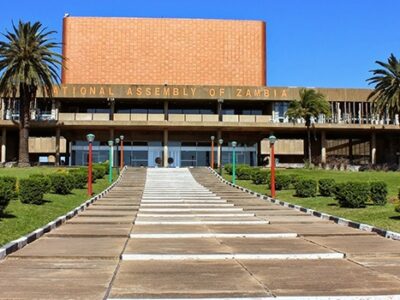Zambia’s democratic journey has been marked by a complex interplay between tradition, politics and technology.
In the digital age, the quest for free speech amid disruption presents both opportunities and challenges.
The rise of technology and social media has revolutionized how citizens express themselves, access information and participate in the democratic process.
This digital transformation has empowered individuals to share their voices and opinions more freely than ever before.
However, it also brings forth new challenges, including the spread of misinformation, hate speech, and online harassment.
As Zambia grapples with these issues, the fundamental right of freedom of speech remains a cornerstone of its development.
Social media platforms and blogging communities have democratized the media landscape, providing alternative voices and perspectives that challenge traditional narratives.
This shift has opened up new channels for public discourse but has also highlighted the need for effective regulation and digital literacy to manage the complexities of the digital age.
Despite the constitutional guarantee of freedom of expression under Article 20(i)—which asserts that no person shall be hindered in their freedom to hold opinions, communicate ideas, or correspond without interference—the government’s role in regulating online content has become increasingly contentious.
While the constitution provides a framework for protecting free speech, the practical application of these rights often encounters limitations.
A notable example is the Cyber Security and Cyber Crimes Act of 2021.
This legislation, aimed at enhancing cybersecurity and combating cybercrime, has faced criticism for its broad provisions that some argue could be used to restrict online freedoms.
Critics fear that the Act’s measures related to cybercrime and electronic evidence might lead to censorship and suppression of free speech.
Emmanuel Mulenga, a student at Kapasa Makasa University pursuing a degree in Information and Communication Technology, highlights the tension between public demand for free speech and government control.
“Expressing oneself without fear of censorship or retaliation is crucial in a democratic society,” Mulenga asserts.
He pointed out that despite the enactment of digital rights policies, there has been an increase in surveillance and attempts to control the digital space, which could be used to limit legitimate online activities, including government criticism.
In contrast, Rabecca Kapakyulu, a Media and Journalism Studies student at UNZA, emphasizes the positive impact of digital technologies on marginalized communities.
She noted that these technologies have made it easier for such communities to express themselves and reach a wider audience.
Kapakyulu expressed believe that addressing both the challenges and opportunities of free speech in the digital age can lead to a more inclusive and open future.
As Zambia’s digital landscape continues to evolve, ensuring that the digital environment remains open, inclusive and respectful of diverse perspectives requires collaboration among citizens, government, and the private sector.
The goal is to balance the need for regulation with the fundamental right to free expression, fostering a digital space that supports democratic values and promotes informed public discourse.
In summary, the quest for free speech in Zambia’s digital age is a dynamic and evolving challenge.
By addressing the complexities of regulation and embracing the opportunities provided by technology, Zambia can work towards a future where freedom of speech thrives in the era of disruption.
WARNING! All rights reserved. This material, and other digital content on this website, may not be reproduced, published, broadcast, rewritten or redistributed in whole or in part without prior express permission from ZAMBIA MONITOR.













Comments